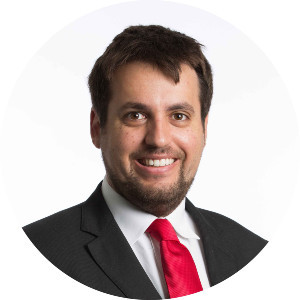Hi,
We all hear how great it looks for a candidate to rebound after a mistake they figured, and actually pick up on it to refine their approach/solution.
However, if an issue was there in the structure, and the candidate discovers the issue Mid-way, would it be ok to acknowledge that issue, and ask for 30 seconds to restructure their thoughts and proceed ?
Another scenario might be during the recommendation. Let us say that the candidate has forgotten to ask for the target, timeline (increase by X, or achieve by X time), and only figured it out as they were going to present their recommendation. Would a question look bad at that stage ? or would it add some points to the candidate ?
I would like to know what are the best practices in this area (discovering a mistake, trying to fix it).
Thanks !
Rebounding when figuring out a mistake


This is a point that I frequently emphasize when coaching candidates: if you find out that your structure from the beginning has been missing an important element, it is not only ok, but ESSENTIAL to refer back to your structure and integrate the newly discovered aspect into it! Here it is best practice to actively moderate the process, i.e.,
"This is a very interesting finding, and I believe it critically impacts my basic structure. So if you allow me, I will take a moment to refine my approach and then walk you through how the new element relates to the rest of the structure.".
Because guess what - this is what happens basically every week during real consulting work! You constantly iterate and refine, so doing this in a clear and logical way during the case interview shows a very important skill.
Regarding the recommendation phase, I would not ask the questions on time at this stage. I would rather frame my recommendation as contingent on the time horizon. E.g.,
"If you are looking at a short to mid-term time frame (<18 months), the recommendation is [abc]. For a longer time horizon though, I would rather recommend [xyz]."

Hi,
First of all - it is absolutely ok to take a minute and structure your thought. In fact, you never stop using the structures. Thus you can always reshuffle your structures, build the new structures, etc. It's a constant process.
The most common feedback on the interviews is "You are not structured enough". To avoid this you should always be structuring. Make an initial structure and then dig deeper using the new structures. These structures can be both fully MESE issue trees or frameworks or a combination of both.
For example, if you find that we spend more time on cleaning the job shop than the other division you go with the following:
- Frequency of cleaning * Time spent per one cleaning
- If we find that the frequency is the same, we structure it further into: People, Process, Technology
Secondly, it is really hard to make a good framework if you don't know the objective. It's something that you should never forget doing! Have the rule to do the following at the beginning of the case:
1) Clarify the business model. Even if you think you understand it, try to repeat it to make sure that you understand it correctly.
2) Clarify the objective. Here make sure that your goal is:
- Measurable
- Has a time-framed
- Has / has no limitations
e.g. Should I invest 100k in this business for 1 year if I want to get 15% return?
3) Ask the questions that will help you build a relevant structure and remove ambiguity.
e.g. if the case is about oil&gas company which revenues are declining, ask if it is Up / mid / down-stream problem. In this case, defining a revenue stream is critical to setting up the right structure.
Best,
Vlad
Hey Ghali,
I believe Sidi's point already cover the basics of what to do if you discover a "small mistake" or a "small lack" in your framework. Let me just add on what to do if you discover that you're initial framework was completely unreasonable.
First of all, that might happen in the early begin of the case. If your interviewer sees such a framework he might challenge you immediately to check if you can come up with something else more robust and appropriate. In such case, my advice is for you to take it as a second chance to impress, do your best and above all don't be defensive (i.e., arguing that your initial framework was amazing).
Second, the interviewer might allow you to proceed to see where you end up, but mid-case you realize that's not being helpful. In those case, you should still be brave and recognize that there might be a better way to approach the problem - lay the new framework down.
In both cases, do your best to impress in your second try!
About questions in the recommendation: definitely not. Not a time for further questions or analysis, if something include them in the next steps.
Best
Bruno

Hi Ghali,
as for your first question, as Sidi and Bruno mentioned, it is totally ok to ask for 30 seconds and restructure your approach. As Sidi said, you will actually gain points in this way.
As for your second question on the recommendation, I personally don’t agree with the previous answers. Although you would not gain all the points clarifying the objective later, it is far better to ask before the recommendation than don’t ask at all. If you keep the recommendation hypothetical, you simply show you don’t know you should clarify the objective. You are not going to hide the mistake to the interviewer not asking, has he/she noticed that from the beginning.
Thus I would suggest proceeding with something as follows:
“Before I move to the sum up, I would like to clarify the specific target of our client. We found so far XYZ in savings. Do we have any information on the specific target in absolute amount of the client?”
This won’t give you back all the points you lost not clarifying before, but will let you to recoup some of them.
Best,
Francesco















